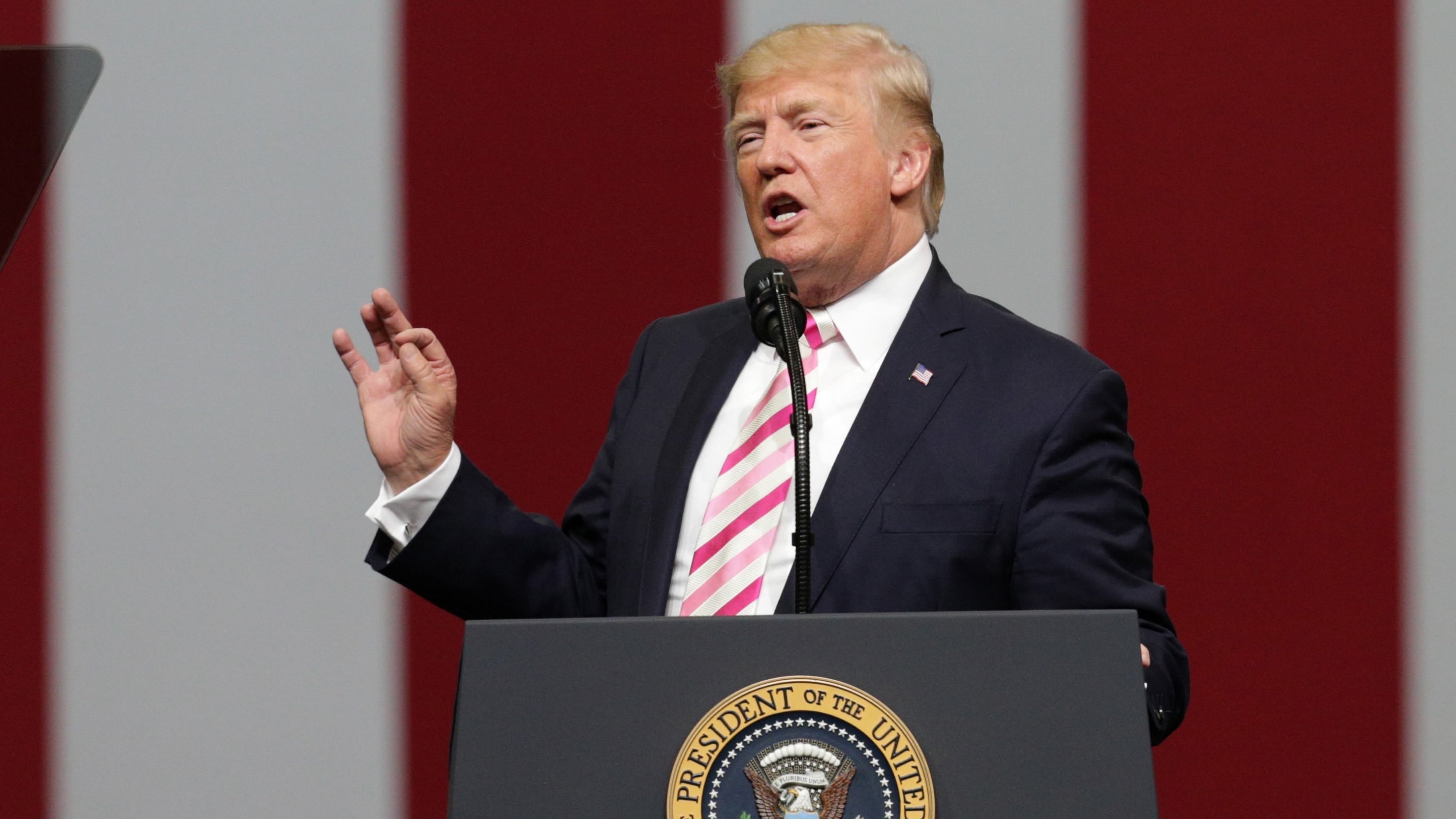US President Donald Trump is considering a new order to replace his soon-to-expire travel ban on people from six Muslim-majority countries that would be tailored on a country-by-country basis to protect the United States from attacks, US officials said on Friday.
With the current ban on people from Iran, Libya, Somalia, Sudan, Syria and Yemen due to expire on Sunday, Trump was given recommendations by Elaine Duke, the acting homeland security secretary, but has not yet made a decision on the details of any new order, the officials told reporters.
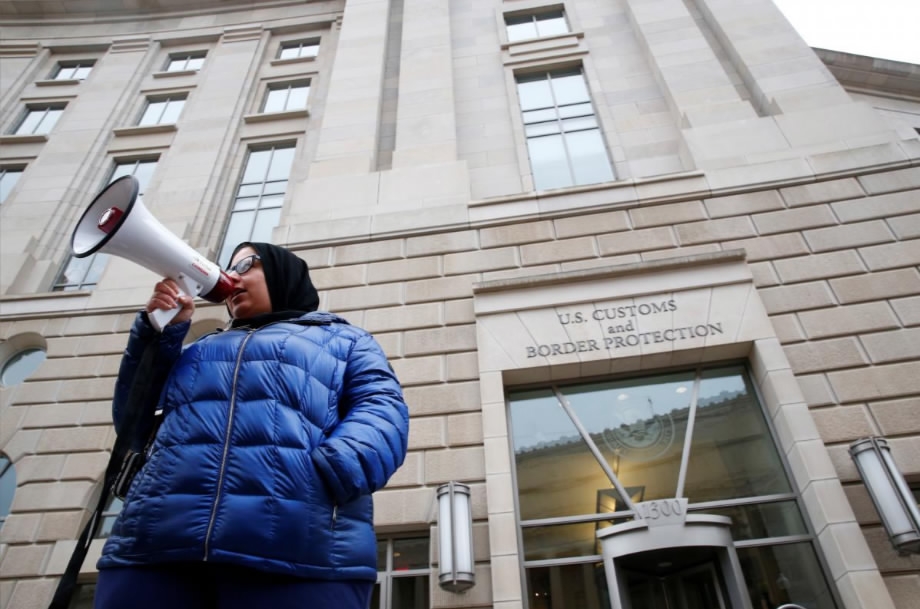
Immigration activists rally against the Trump administration's ban against travelers from six Muslim-majority nations, outside of the US Customs and Border Protection headquarters in Washington, the US, March 7, 2017. /Reuters Photo
Immigration activists rally against the Trump administration's ban against travelers from six Muslim-majority nations, outside of the US Customs and Border Protection headquarters in Washington, the US, March 7, 2017. /Reuters Photo
Miles Taylor, counselor to Duke, said she recommended to Trump “actions that are tough and that are tailored, including travel restrictions and enhanced screening for certain countries.” Taylor declined to say which or how many countries would be targeted, including the status of the six countries covered by the current ban.
White House spokesman Raj Shah said that while “we can’t get into decision-making,” the next step will be a presidential proclamation setting out the new policy. He declined to say when that would come, including whether Trump would act before the existing ban expires.
The American Civil Liberties Union, the rights group that mounted one of the legal challenges to the March order, expressed skepticism about Trump’s forthcoming action.
“This looks to be the Trump administration’s third try to make good on an unconstitutional campaign promise to ban Muslims from the United States,” ACLU Executive Director Anthony Romero said.
Trump’s six-nation travel ban was laid out in a March 6 executive order that was blocked by federal courts before being allowed to go into effect with some limits by the US Supreme Court in June.
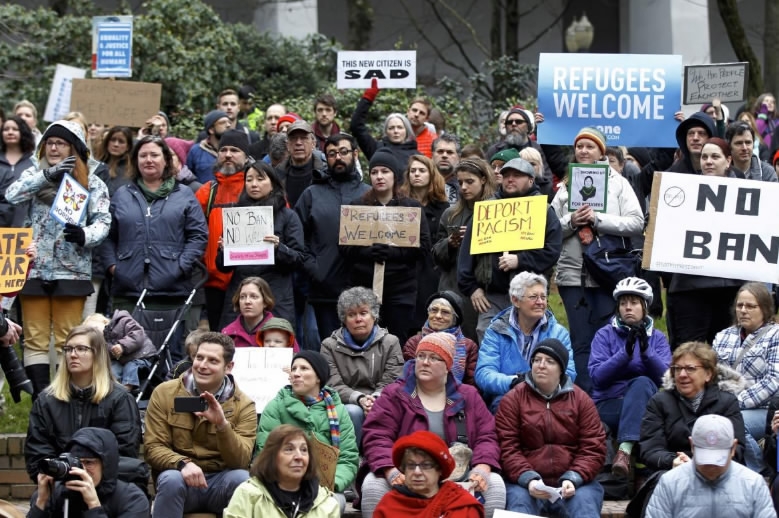
Activists gather at Terry Shrunk Plaza to protest against President Donald Trump's travel ban in Portland, Oregon, the US, January 30, 2017. /Reuters Photo
Activists gather at Terry Shrunk Plaza to protest against President Donald Trump's travel ban in Portland, Oregon, the US, January 30, 2017. /Reuters Photo
Under the recommendations Trump is weighing, there would be restrictions on US entry that differ by nation, based on cooperation with American security mandates, the threat the United States believes each country presents and other variables, Taylor said. He did not specify the nature of the restrictions, but said that after being imposed they could be lifted “if conditions change.”
Political uproar
The ban – which initially included Iraq and was accompanied by a 120-day block on all refugees – sparked a political uproar when Trump first announced it on January 27, a week after becoming president.
It came after Trump repeatedly promised to block Muslims from the US, in last year's election campaign.
The ban was frozen by courts after a weekend of chaos at airports and a barrage of lawsuits by immigration advocates and civil liberties groups.
The administration's stated reason was national security: the need to ensure the six countries have adequate vetting procedures for travelers, so as to prevent terrorists from entering the country.
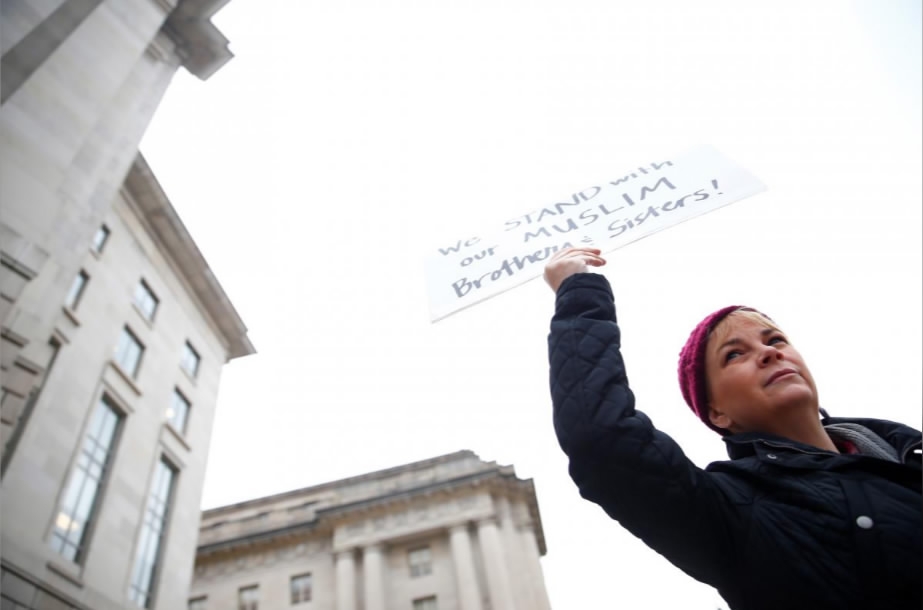
An immigration activist protests against the Trump administration's travel ban on March 7, 2017. /Reuters Photo
An immigration activist protests against the Trump administration's travel ban on March 7, 2017. /Reuters Photo
But critics alleged that it amounted to Trump's promised travel ban which courts agreed was unconstitutional because it discriminated against a single religion.
Several states also sued to block it on grounds that it prevented legitimate visa holders, family members, US residents, students in universities and foreign workers for US companies from entering the country.
After losing challenges in appeals courts, on March 6 the White House unveiled a revised ban, excluding Iraq and exempting people who already had visas. Nine days later that, too, was frozen, by a judge in Hawaii, for largely the same reasons as the original.
Again, the administration lost in two appeals courts, leaving Trump furious and turning to the Supreme Court.
Trump declares victory
On July 26 the high court ruled to partially lift the freeze on the ban, while agreeing to hear the White House's appeal to lower court rulings in October.
Trump declared a political and legal victory and shut down visa issuance for the six countries.
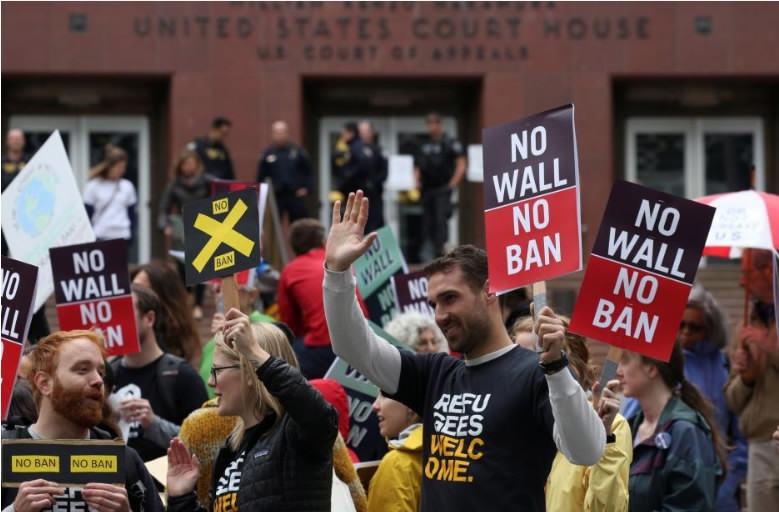
People protest against US President Donald Trump's travel ban outside of the US Court of Appeals in Seattle, Washington, US, May 15, 2017. /Reuters Photo
People protest against US President Donald Trump's travel ban outside of the US Court of Appeals in Seattle, Washington, US, May 15, 2017. /Reuters Photo
"Great day for America's future Security and Safety, courtesy of the US Supreme Court. I will keep fighting for the American people, & WIN!" he tweeted.
By that time, ironically, the original 90-day ban would have been expired for two months. Arrivals from the six countries had already fallen by more than half due to "extreme vetting" procedures that increased the difficulty of getting a US visa.
The White House has not hinted how it will handle the expiration on Sunday, and advocates for immigrants say they don't know.
The Department of Homeland Security last week presented the White House a classified update on security issues for travelers from the six countries as well as others from 17 nations originally reported as deficient in traveler vetting.
The Wall Street Journal said the updated policy could be expanded to eight or nine countries, but with different travel limitations on each. The possible countries to be added were not named.
Source(s): AFP
,Reuters

